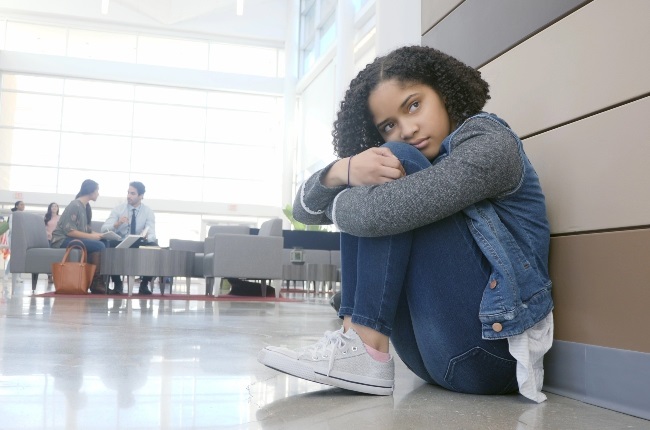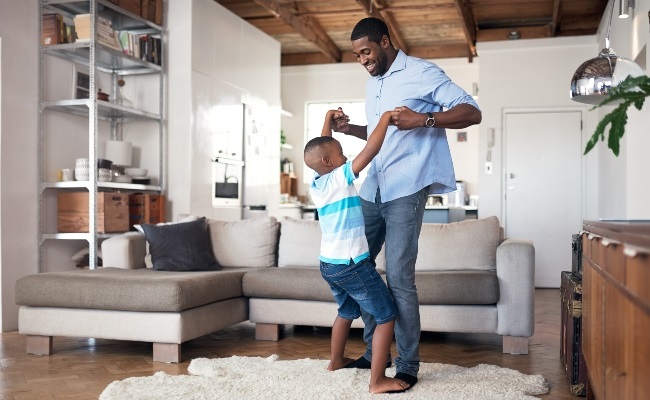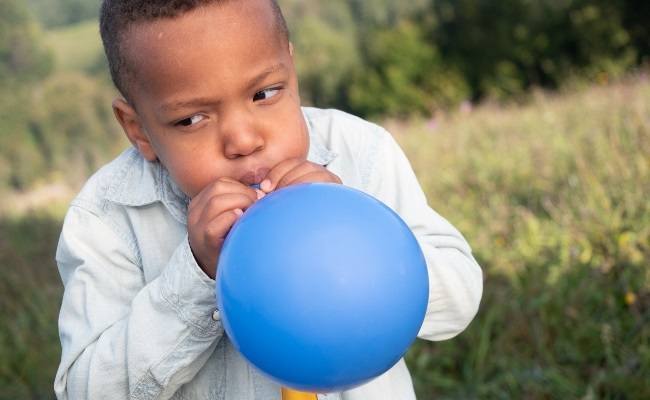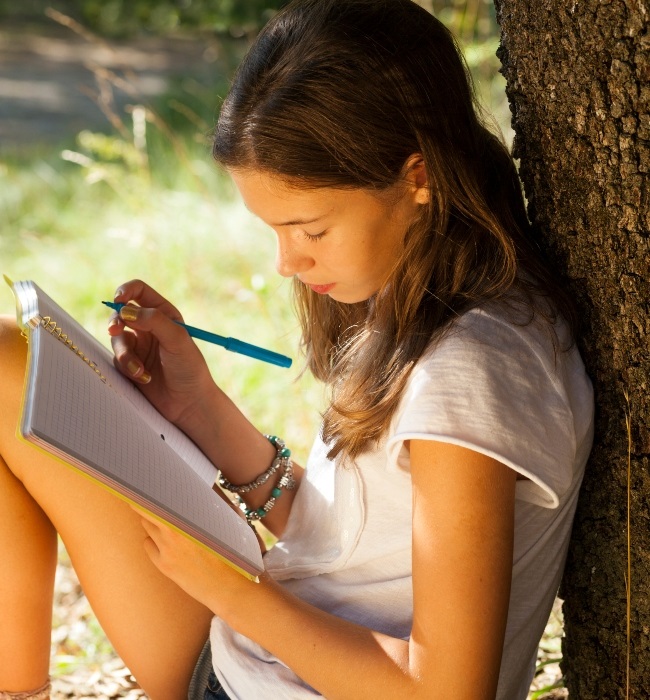
Some kids look forward to the new school year: a new class, a new teacher and a schoolbag full of new stationery. But all this change can also be terrifying.
Whether it’s your child’s first time going to “big school”, or if they’re switching schools, or maybe they just have to get used to a new grade and a new teacher, anything unfamiliar comes with a fear of the unknown.
And while the excitement of something new can outweigh the fear for some children, it can be stressful for others.
It’s the uncertainty, the “what if?” scenarios that cause anxiety, says Dr Lenette Kruger, an educational psychologist from Alberton, east of Johannesburg.
So how can you help your child deal with these challenges? What can you do to minimise the impact of change and how do you empower them to deal with anxious feelings when you’re not around?
Here experts weigh in on how you can support your child with empathy and understanding, and help them kick off the new school year with self-confidence.
WHAT DOES ANXIETY LOOK LIKE IN CHILDREN?
Anxiety manifests in different ways depending on a child’s personality and because their emotional skill sets differ, Dr Kruger explains. “Not all kids react to anxious situations in the same way, but there are certain signs that may indicate they’re managing anxiety in a dysfunctional way,” she adds.
Look out for behaviour that’s different to your child’s usual, everyday reactions, says Lindsey Schwartz, an educational psychologist from Boksburg, on Johannesburg’s East Rand. These can happen suddenly or gradually and include:
- Moodiness
- Clinginess
- Developing a nervous habit such as biting their nails
- Trouble concentrating
- Feeling fearful about all sorts of things
- Social withdrawal
- Bedwetting
- Tummy pain
- Headaches
- Trouble sleeping
- Terrifying fantasies and daydreams
- Fear of looking incompetent or losing control
- Fear of rejection or being left alone
- Thinking something terrible is going to happen.
Kruger adds that physical symptoms can also include increased heart rate, a tight feeling in the chest, pins and needles, restlessness, feeling “jumpy”, sore or stiff muscles, shivering and light-headedness.
This behaviour usually lasts longer than just a single emotional reaction or episode.
It’s important to realise that an anxious child isn’t just being “difficult” or “naughty”, Schwartz points out. “If you misunderstand your child’s anxiety, it can make them feel lonely and cause them to struggle with expressing their emotions.”
Aggressive and obsessive behaviour might also occur but is less common. Aggression is a way for a child to express the fear or sadness they’re experiencing, Kruger explains, while obsessive behaviour is a way of controlling these emotions.
A child’s age also determines how anxiety manifests, Schwartz says. Younger children, up to around eight to nine years old, tend to display physical symptoms such as a tummy ache, crying or simply refusing to go to school.
In older children, the first sign of anxiety is usually withdrawal from social interaction.
WHAT YOU CAN DO TO HELP YOUR CHILD
The most important thing you can do is help your child understand what anxiety is, how to identify it and teach them ways to cope with it when you’re not around.
“It’s important that the child understands that anxiety is normal and that everyone experiences it sometimes but it’s how you handle it that makes the difference,” Dr Kruger says.
Here are some tips.
Listen
The most important thing you can do is to listen to what your child is saying with understanding and patience. Don’t just listen so you can give an answer, Dr Kruger says.
“A child needs to feel safe enough to share their feelings and thoughts without worrying that they’re not being taken seriously.”
Your child needs to know you’re always there to support them, she adds. Ask about your child’s day every day. Show interest in what they did, who their friends are and how they feel about what happened that day. This way they’re more likely to be comfortable talking to you if there’s a problem or something that’s causing them anxiety.
Set the example
When children see adults deal with anxiety-inducing situations, it shows them how to deal with similar situations themselves. So you need to model what emotional intelligence looks like. Vocalise your own feelings and explain how a certain situation makes you feel. This will help your child realise everyone feels overwhelmed sometimes and eventually they’ll learn the skills to express their own emotions in words.
Be positive
Encourage a positive outlook by asking questions such as, “What made you smile today?”, “Who did you see who was friendly?”, “What’s your favourite game to play at break times?”, “Did you learn something interesting or surprising today?”, “What did you do today that was fun?”.
You can also help your child to rephrase something they experienced as overwhelmingly negative, Dr Kruger says. For example, if your child says something like “My whole life is terrible”, encourage them to rather say, “I had a terrible experience but what can I learn from it?”.
Praise your child when they’ve done something that used to scare them and remind them of this ability to overcome their fears when anxious feelings emerge again.
Take the sting out of the unknown
If your child is anxious about a new school or new school year, try to reduce the uncertainty, says Dr Pauline Mawson, a clinical psychologist from Benoni who specialises in play therapy. Drive past the school, see if it’s possible for your child meet their new teacher, and let them help you prepare their books and stationery.
“Talk about the new school year and what their worries are,” she adds. “Ask them what they need to help them feel better.”
Dr Kruger concurs and says routine is important here. “If a child knows what to expect, it takes away their fear of the unknown. Tell them what time you’ll be dropping them off and picking them up, get them to make sure they have everything they need in their schoolbag the night before, and stick to a regular sleep routine.”
If your child is starting Grade 1, you can even ask your child’s new teacher what a typical day looks like so you can prepare your child. For example: first, they’ll be drawing a picture, then it’s story time, and then it’s breaktime, when you’ll eat your sandwiches.
If your child’s greatest anxiety is making new friends, you can reach out to other parents and organise playdates before school starts so there are a few familiar faces on the first day in class. Your child might do better with making new friends if you’re there for the first meeting.
Talk to an expert
If you feel your child’s anxiety is severe, or you feel overwhelmed by the situation, don’t hesitate to speak to an educational psychologist or to take your child to play therapy. Your child’s teacher should also have some tips for addressing their anxiety in a practical way.
TEACH YOUR CHILD THESE STRATEGIES
Ideally, you should teach your child the emotional skills they need to deal with feelings of anxiety on their own, even when you’re not around.
These techniques can become part of your child’s daily routine, Dr Mawson says. If they’re practised consistently, your child is more likely to cope with anxiety instead of becoming overwhelmed by it.
Deep breathing
“When you’re in a stressful situation, your body automatically goes into fight, flight or freeze mode,” Schwartz says. “Deep breathing helps calm you down and reduces stress.”
Teach your child to inhale through their nose, inflating their belly as much as possible, and then slowly exhale through their mouth. It’s a subtle technique they can use anytime.
Breathing exercises work for children of all ages. For younger children, get creative to help them practise it – they can inflate a balloon, smell flowers, blow bubbles or blow out a candle from a distance.
Visualisation
Tell your child to visualise a previous event that made them happy. Focus on as much detail as possible. They can also visualise a future event, and make it exciting. This way, the steps leading up to the event – which often causes stress – become less overwhelming. If, for example, you chat to your child about what’s going to happen after the first day back at school, such as the two of you doing something enjoyable together, your child might feel less anxious about the day itself.
Relaxation
Use the technique of progressively relaxing all the muscles in the body. Do this while lying down, and teach your child to methodically tense and then relax the various parts of their body, from head to toe. Younger children might benefit from creating art or playing with clay.
Shake off the fear
Think of creative, active ways of helping your child with this, says Lianca Fourie, a play therapist from George in the Western Cape.
“It can be anything from dancing together to throwing water balloons or shooting at targets,” she says. “An activity in which the child controls something will help them feel more empowered and this will give them a feeling of control over the emotion that’s bothering them.
“You can even have your younger child address the scared feeling and chase it away by saying something like, ‘Get away from me!’” she explains.
Name and process feelings
Journalling, vision boards and a “worry box” are also helpful ways for older kids to deal with their feelings. “Let them write down their worries and put it in a box to stow away,” Schwartz says. They can also draw or stick pictures of things they want to achieve on a vision board, thereby putting things into perspective and visualising the outcome they want.
TEENS ANXIOUS ABOUT HIGH SCHOOL
It’s not unusual for teens, especially those starting high school, to feel anxious. Talk to them about previous stressful situations and how they successfully handled them, says says Dr Lenette Kruger, an educational psychologist from Alberton, east of Johannesburg.
Help them shift their focus from the problem to the skills they can use to help them cope. Kruger also has these tips for helping your teen adjust to high school:
- Assure your child that anxiety and uncertainty are a normal part of this transition.
- Attend information sessions at the school. Familiarity and knowing what to expect will ease anxiety of the unknown.
- Don’t try to solve your teen’s problems for them. Your child must learn to think through their own problems and find possible solutions. What you need to ensure is that your teen feels comfortable talking to you about what they’re feeling.
- Encourage them to keep in touch with old friends but to also make new ones. Suggest they invite some of them over so you can get to know their new circle of friends.
- Ensure your child knows what resources are available to them at school and, should any problems arise, which processes to follow. This includes the school psychologist or counsellor, or the grade’s head teacher.




 Publications
Publications
 Partners
Partners






















